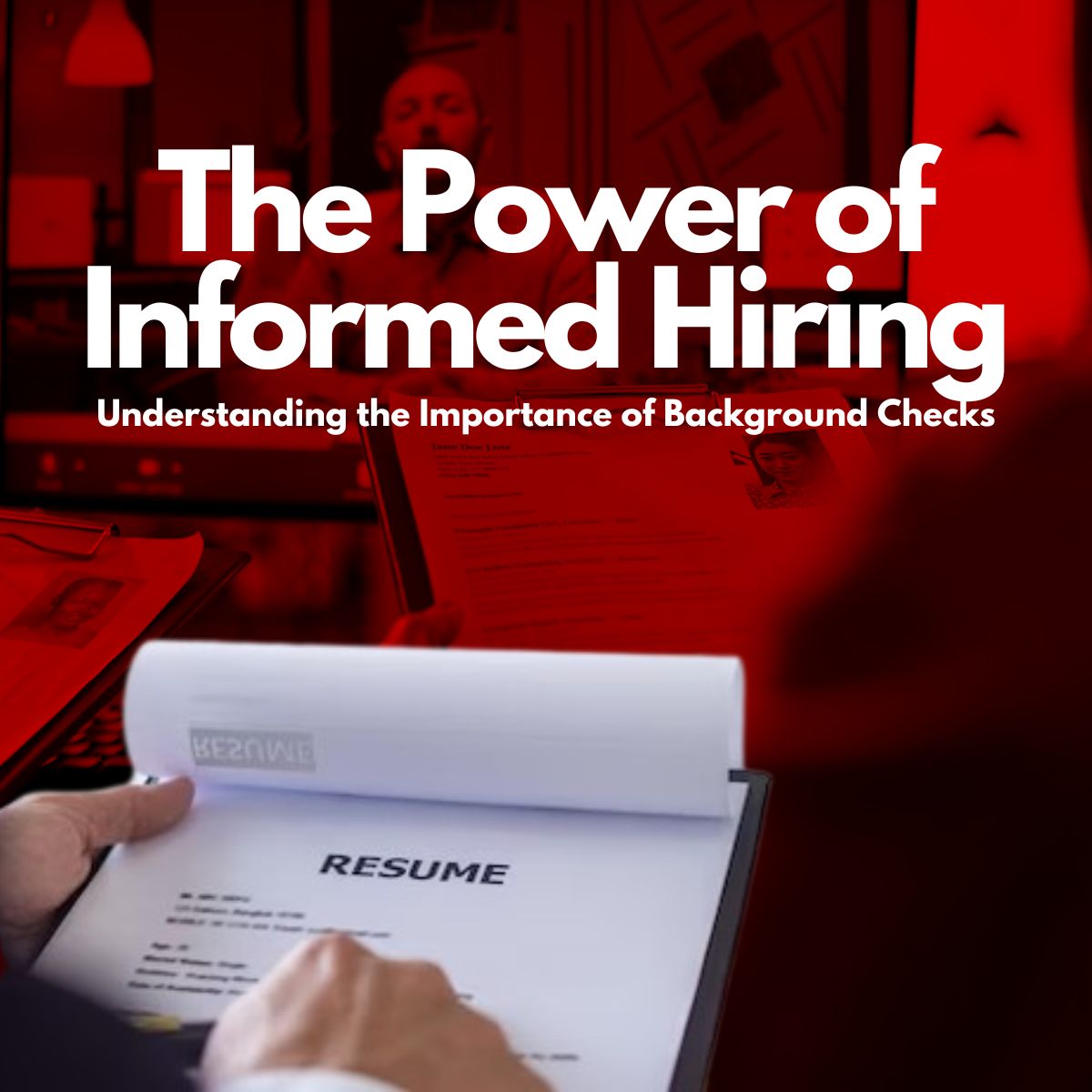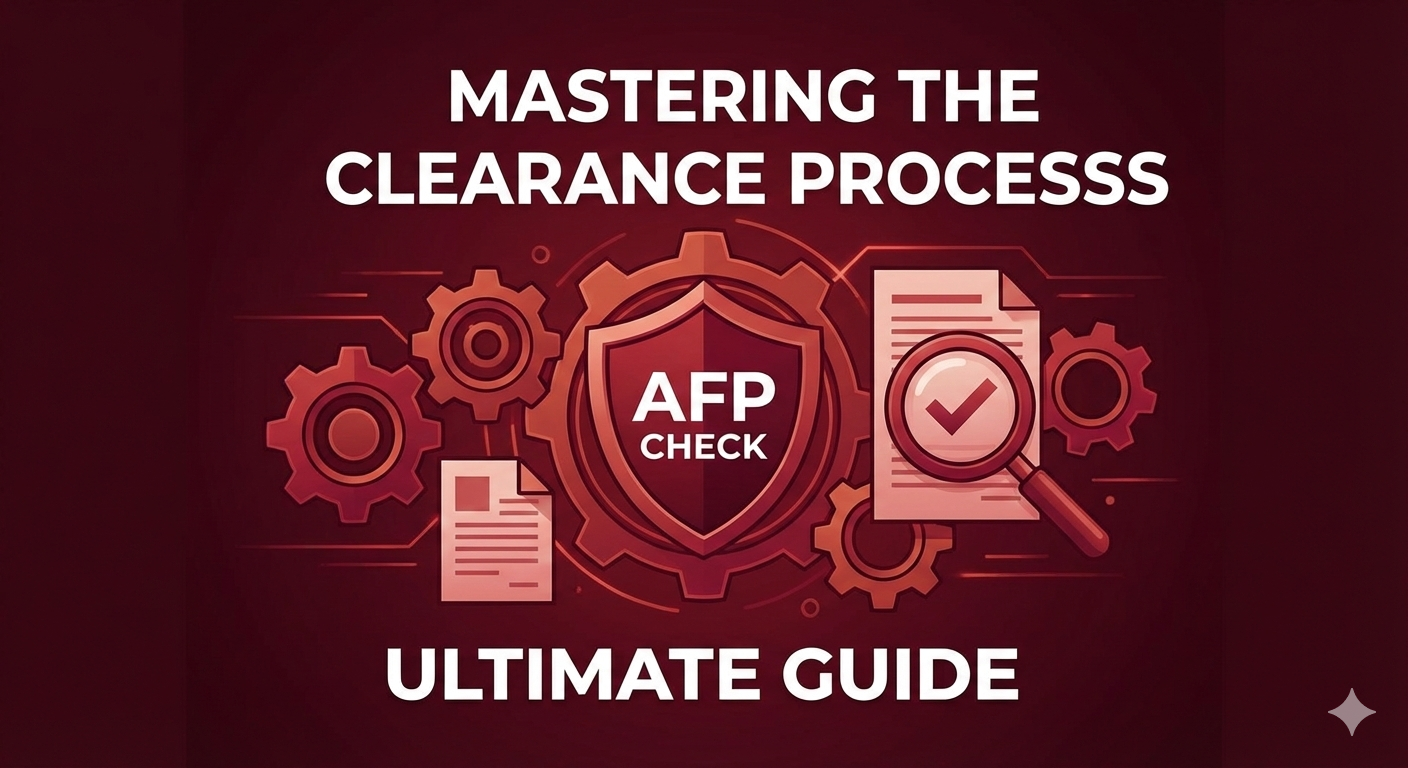Background checks are very important part of employment this, therefore, means that the background check is within the setting of hiring processes; hence, it leaves the point of making a decision dependent on an employer fully knowledgeable with the details it displays. The sections that follow explain some of the details of what a background check shows, why it is important, and how background checks work. Whether you are a job seeker or trying to hire someone new at your company, knowing every tiny detail about importance of background checks will be very helpful in completing the process with confidence.
What is a Background Check?
Most companies engage in background checking to confirm the information provided by a candidate during the recruitment process. All the checking means going through the various types of records checking data given by a candidate whether they are proper for any particular position within a company. It may include an employment history, verification of education, criminal records, and checking of credit records.
Types of Background Checks
There are a couple of types of background checks available, and which is conducted will depend on the job itself and the industry:
Employment Background Checks
Employment Background Checks are focused mainly on verifying job history. The check is essential in confirming the candidate’s positions, employment dates, and reasons for leaving. It helps an employer to see if a candidate has the experience and skills reflected by the resume.
Criminal Background Checks
This is also called National police check, which consists of the candidates’ criminal history. That is, checking criminal records at local, state, and federal levels by inquiring about any conviction, arrest, or pending charge against the candidate. An employer would manipulate the information and decide whether the employee will prove to be a potential threat to the working environment.
Credit Background Checks
The credit background check is generally meant for financial handling-type jobs. In this manner, employers can trace the candidate’s financial status and the amount of trust he or she can be awarded.
Education Verification
There are some measures to establish that, if truly, the candidate has the kind of qualifications they seems to have. They may be obtained directly by liaising with the particular institutions, or through third-party verification.
Reference Checks
Reference checks can be performed by directly calling former employers, managers, or the person’s references on the resume to assess work performance and behavior besides reliability.
Why Background Checks Are Important
There are a number of objectives of having background checks conducted; a few important ones are:
Safety in the Workplace
Employers can screen out the potential candidates who would prove to be dangerous to fellow employees or even customers. For instance, one is able to establish the history of any violence or theft through criminal background checks.
Verification of Qualification
Background checks extend to any form of qualification and experience by a candidate. This is of particular importance in cases where the requirement is for either unique skills or certifications.
Safeguards the Reputation of the Company
If there is an employee hired who has not been verified through background verification, there is every possibility that he may bring harmful effects on the reputation of the company. For instance, hiring a person who is a criminal in the past, and he commits another crime then this will not only damage the reputation of the company more but also drag it into some legal issues.
Legal Requirements some industries have policies in which background screening is compulsory. For instance, in the Australian sectors of Aged care, child care, and Health care, respect the importance of background checks. The non-complying employer may face legal penalties.
Background Checks in Australia
Background checks in Australia are very common. The three common types of jobs include criminal record, employment history, and educational verifications.
What Employers Need to Know:
The employer in Australia is duty-bound to perform a background check if a specific requirement is met. The information gathered through background checks is the use and disclosure of personal information controlled by the Privacy Act 1988. However, most importantly, an employer should gather information based on the position and with the consent of the candidate.
Screening and Background Checks: Best Practice in Australia
Employers in Australia follow a range of best practices to ensure background checks are compliant and effective:
Informed consent: Always obtain written consent from the candidate before performing any type of background check. The consent must clearly state what kind of check you will conduct and how you will use the information gathered about them. Employ Reputable Background Check.
Services: Only those services must be opted for regarding background checks, which act according to the laws and regulations of Australia. Such services may be provided in current and accurate formats to assist employers in making wise decisions.
Relevance: Gain access to information that is relevant to the job. For instance, importance of background checks for criminal records us mandated for surveilling- would not be a requirement in several data entry tasks.
Background Checks Available for Employers: Things to Consider
At the point of recruitment and selection, importance of background checks have arguably become a prerequisite for employers. Generic examples of these include :
Legal Compliance:
Establish if the background checking process is under all the applicable laws. These include candidate consent and appropriateness of information usage.
Consistency
Ensure that the background check applied to one candidate is the same for another candidate seeking a particular post. This makes the exercise fair and minimizes cases of discrimination claims as well. Transparency Make all aspects of your background check plans known to each person on only one candidate background check that you intend to use. Clearly inform candidates about the types of checks you plan to run and explain how the information will be used.
Pre-Employment Background Checks: A Critical Module of the Hiring Process Employment background verification is the most vital process in the process of hiring. This gives the hirers the requisite information with which they are able to make calculated decisions and not hire inappropriate candidates.
Process of Conducting Employment Background Checks
Step 1: Seek Approval from Candidate
Employers must seek written approval from the candidate before conducting a background check to ensure full transparency and comply with legal requirements.
Step 2: Gather Data
Get data from the candidate regarding his previous employment history, educational data, and his referees.
Step 3: Execute the Checks:
Employers should conduct background checks through a professional background check service. Such checks are likely to pertain to the candidate’s employment history, if he has criminal records, and the authenticity of his educational qualification.
Step 4: Results Analysis:
You now compare the results of your background checks with the candidate’s qualifications to determine whether they are the right fit for the job. Now proceed to analyze any discrepancy or red flag you have come to know of.
Step 5: Make an Informed Decision
Finally, make an informed decision about who to hire based on the information learned from the screening and background check process. Ensure you can justify any poor results and that you have made the correct decision based on the information.
Applicant Screening and Background Checks
With the rise of technology, organisations can now easily take proper measures to ensure verification. Automated systems and, more recently, artificial intelligence have started to make the process smoother and free from human error if not totally, then as much as possible.
Screening Driven by AI:
This kind of technology comes to the rescue in sieving through humongous pools of data at very high velocity with due accuracy. This makes it easier to conduct a check of possible “problem” spots, as the employer will clearly be able to uncover them.
Blockchain Technology
Blockchain technology is researching tamper-proof records that will be as secure as the highest while still staying updated on importance of background checks. It increases the quality and trust with which you issue such a document.
Global importance of background checks
The importance of background checks in the new global workforce, us that they are now doing the à la carte background checks over the borders on a regular basis. This will need deep overall knowledge of variances of legal and cultural aspects of various countries.
Conclusion: Do Background Checks Matter That Much
No employer is ever to do without background checks to make sure they have the right people on board. This will safeguard the business, employees, and customers through proper history verification and qualification confirmation. Indeed, importance of background checks for that new project are part of great hiring in Australia for example, a gaming project like Starfield.
FAQs About Background Checks in Employment
1. What does a background check show?
A background check can reveal a candidate’s criminal history, employment and education records, credit history, and professional references. The exact contents depend on the type of check requested by the employer and the nature of the job.
2. Are background checks mandatory for all jobs in Australia?
No, not all jobs require background checks, but they are mandatory in industries such as aged care, child care, healthcare, and government roles. Employers must comply with relevant legislation when conducting these checks.
3. Can a candidate be denied a job based on background check results?
Yes, but only if the findings are relevant to the job role. For example, a criminal record related to fraud may disqualify a candidate from a financial position. However, employers must follow fair hiring practices and give the candidate a chance to explain any discrepancies.
4. How long does a background check take in Australia?
Most background checks in Australia take 2 to 10 business days, depending on the type of check and the thoroughness required. Some checks, like national police certificates, may be completed faster if done online.
5. Is consent required before conducting a background check?
Yes. Employers in Australia must obtain written consent from the candidate before initiating any background check. This ensures transparency and compliance with the Privacy Act 1988.
6. Can an applicant dispute the results of a background check?
Absolutely. If a candidate believes a background check contains incorrect information, they can request a review or submit documentation to clarify or correct the record. Employers should pause hiring decisions until the dispute is resolved.
7. How can employers ensure their background checks are legally compliant?
Employers should use accredited screening services, ensure informed consent is obtained, and only collect data that is relevant to the job. Following fair, consistent, and transparent processes is key to avoiding legal issues or discrimination claims.




